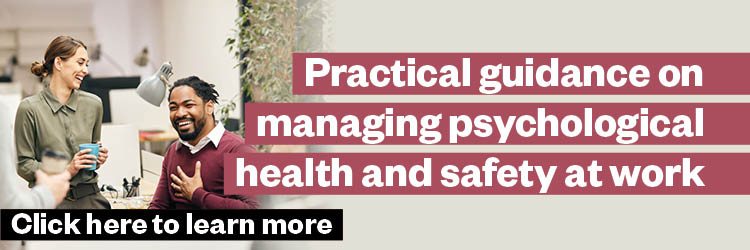
Kate Field
Global Head, Health, Safety and Well-being, BSI
Organisations building a culture of care around their people to help them through the cost of living crisis are embedding support services that will, in the future, be beneficial for everyone.
As inflation soars, interest rates rise and energy prices spiral, more of us are either struggling — or going to struggle — with the cost of living.
“Organisations learned an important lesson during the Covid-19 pandemic,” says Kate Field, Global Head of Health, Safety and Wellbeing at business improvement and standards organisation, BSI. “Those that built a culture of care around their people came out of the crisis stronger and with a more loyal workforce. It’s one reason why many organisations are proactively looking at ways to support their staff during this difficult time.”
Signs that people are struggling
Of course, it may not be easy to recognise those who are struggling financially. “Some staff might simply ask for more money or overtime, or they’ll leave for a better-paid job,” says Field. “But it won’t always be that obvious, so organisations need to be aware of the less overt signs among their workforces.”
“For instance, someone might be increasingly tired because they’re having to take on extra work outside of their normal job. Or, because people are concerned about job security, they won’t take time off even when they are unwell; so presenteeism — ie. being at work physically but unproductive — could become an issue. Also, work-related stress and anxiety could increase, so you might see a drop-off in morale.”
Access to confidential advice
The next challenge for employers is delivering support that actually works. What form should it take? Some organisations will operate an Employee Assistance Programme (EAP) — a free and confidential benefit that is designed to help staff deal with any personal or work issues that may be affecting their health or wellbeing.
“This might give employees access to financial advice, either online or through a financial advice service, which could be really useful,” says Field. “Unfortunately, EAPs are often an underused resource (their average take-up is around 5% to 7%), so it’s vital to signpost them clearly to make employees aware that they are available and, crucially, confidential.”
Be honest with your people and talk
to them openly and regularly.
Have effective support systems in place
Field also notes that some larger organisations have been able to make a one-off extra payment to help with the cost of living crisis. But that may not always be a realistic option for most employers.
“However, there are things they can do such as adopting hybrid working, so that staff can save money on their commute,” she says. “Some organisations — shops, leisure facilities, restaurants, etc. — can’t do that, obviously; but the ones who can, may wish to consider it. I’m also aware of organisations with a canteen serving breakfasts and lunches and parcelling up leftovers at the end of the day for people to take home. So, we are seeing a different level of care and thought, and that’s partly down to what organisations have already been through during Covid-19.”
How caring builds strength
Field’s main piece of advice to any organisation is: Be honest with your people and talk to them openly and regularly. “Transparent communication is key,” she insists.
“Often, the temptation is for organisations to keep financial concerns hidden. But the more you can engage with your staff and talk to them about this issue, the better. They might even come up with ideas you hadn’t considered or be more flexible about their working week in a way that you hadn’t imagined. The fact is that the more secure employees feel, the more loyal and productive they will be. And, as we come out of this challenging period, organisations that care about their people will be in a stronger place to attract and retain the best talent going forward.”



